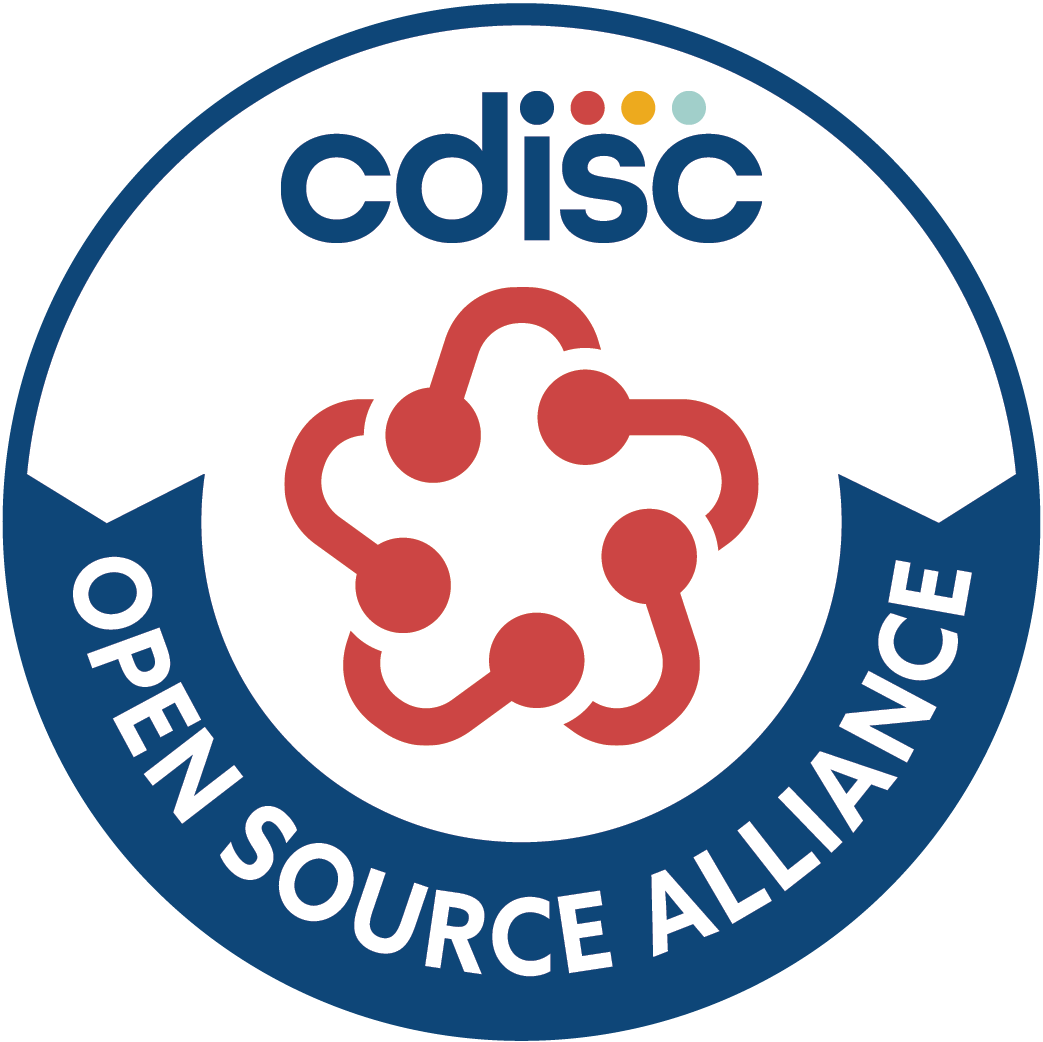
The CDISC Open-Source Alliance (COSA) supports, promotes, and sometimes sponsors open-source software projects that create tools for implementing or developing CDISC standards to drive innovation in the CDISC community.
COSA is directed by a Governance Board that evaluates projects for inclusion in the COSA Repository Directory, sets the project inclusion criteria, and determines what committees are needed to lead COSA activities. COSA activities may include communications or events like webinars, conference sessions, or hackathons. COSA seeks to collaborate with other open-source initiatives with similar missions.
The COSA Repository Directory lists repositories that are officially recognized by COSA as being open-source projects focused on implementing or developing CDISC standards to drive innovation in the CDISC community. All COSA projects must meet the inclusion criteria to be considered for inclusion in the Repository Directory.
Stay up to date with COSA by attending upcoming COSA Events.
COSA Spotlight Q2 2025
Join CDISC and Open-Source Developers for the COSA Spotlight Webinar on 24 June!
Register to hear from open-source developers in the CDISC community as they showcase their free tools as part of the CDISC Open Source Alliance (COSA). Join us to hear presentations on:
- cards, gtSummary
- Dataset-JSON Viewer Hackathon
- JSON Visualizer
- EDA Dataset-JSON Viewer
- 360i and the OSS Community
Join open-source developers from the CDISC community as they showcase their free tools as part of the CDISC Open Source Alliance (COSA). Learn how you can leverage these tools to facilitate the implementation of CDISC standards in your systems.
- Smart Submission Dataset Viewer – Allowing to inspect SDTM, SEND and ADaM submission files in the modern CDISC Dataset-XML standard format.
- CORE – CDISC’s open-source execution engine that delivers a governed set of unambiguous and executable Conformance Rules.
- Rule Editor – A web-based tool for authoring machine-readable Conformance Rules, which allows users to create rules according to a set schema.
Open-source developers from the CDISC community showcase their free tools as part of the CDISC Open Source Alliance (COSA). Learn how you can leverage these tools to facilitate the implementation of CDISC standards in your systems.
- Admiral – An open source, modularized toolbox that enables the pharmaceutical programming community to collaboratively develop ADaM datasets in R.
- R4DSXML – R package for import CDISC Dataset-XML and Define-XML as R data frame.
We'll also introduced Dataset-JSON and provide details about an upcoming Dataset-JSON Hackathon. A data exchange standard for tabular datasets that uses the JSON format, Dataset-JSON is part of the ODM v2.0 draft standard and an enhancement to the Dataset-XML v1.0 specification. Dataset-JSON is designed to meet the requirements of the regulatory submission use case as well as other data exchange scenarios.
Learn how you can leverage these COSA-approved tools to facilitate the implementation of CDISC standards in your systems.
- Tplyr - a grammar of data format and summary, designed to simplify the creation of clinical safety summaries
- Define-XML XLS Stylesheets can be used in the case of electronic submissions to regulatory agencies.
- OpenStudyBuilder - a new approach to working with studies that once fully implemented will drive end-to-end consistency and more efficient processes - all the way from protocol development and CRF design - to creation of datasets, analysis, reporting, submission to health authorities and public disclosure of study information.
To drive innovative approaches to standards-based automation, CDISC has initiated the CDISC Open-Source Alliance (COSA), which supports, promotes, and sometimes sponsors open-source software projects that create tools for implementing or developing CDISC standards.
Learn the basics of how you can leverage the first COSA-approved tools to facilitate the implementation of CDISC standards in your systems.
- TFL Designer – Ingests content from the CDISC Library to design study-specific analysis TFL shells, while producing machine-readable metadata that facilitates generation of analysis datasets and TFLs.
- Visual Define-XML Editor - A WYSIWYG editor to help develop dataset specifications as a Define-XML document from the very beginning of the dataset development process.
- Odmlib – A Python library that simplifies creating and processing ODM and its extensions, such as Define-XML